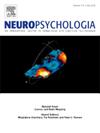Long-term retention of real-world experiences in a patient with profound amnesia
IF 2
3区 心理学
Q3 BEHAVIORAL SCIENCES
引用次数: 0
Abstract
The medial temporal lobe (MTL) is known to be critical for healthy memory function, but patients with MTL damage can, under certain circumstances, demonstrate successful learning of novel information encountered outside the laboratory. Here, we describe a patient, D.C., with extensive but focal bilateral MTL damage centering primarily on his hippocampus, whose memory for real-world experiences was assessed. Tests of remote memory indicated at least some capacity to retrieve specific details. To test his anterograde memory, he was taken on a tour of the NIH Clinical Center, with unique events occurring at each of ten specific locations. His memory for these events was tested after 1 h, and again after fifteen months. Initially, D.C. could not recall having participated in the tour, even when cued with photographs of specific places he had visited. However, he achieved 90% accuracy on a forced choice recognition test of old and new objects he encountered on the tour, and his recognition of these objects remained intact over a year later when he was tested once again. Subsequent recognition memory tests using novel picture stimuli in a standard laboratory-style computer task resulted in chance-level performance across multiple test formats and stimulus categories. These findings suggest a potentially privileged role for natural learning for long-term retention in a patient with severely damaged medial temporal lobes.
深度健忘症患者对真实世界经历的长期记忆。
众所周知,内侧颞叶(MTL)对健康的记忆功能至关重要,但在某些情况下,内侧颞叶受损的患者也能成功学习实验室外获得的新信息。在这里,我们描述了一位主要以海马区为中心、患有广泛但局灶性双侧 MTL 损伤的患者 D.C.,并对其真实世界经历的记忆进行了评估。远距离记忆测试表明,他至少具有检索特定细节的能力。为了测试他的前向记忆,我们带他参观了美国国立卫生研究院临床中心,在十个特定地点分别发生了独特的事件。一小时后测试他对这些事件的记忆,十五个月后再次测试。起初,D.C. 无法回忆起自己参加过参观活动,即使用他参观过的特定地点的照片来提示他也是如此。然而,在对他在游览过程中遇到的新旧物品进行的强迫选择识别测试中,他的准确率达到了 90%,而且一年多后再次接受测试时,他对这些物品的识别仍然完好无损。在随后的识别记忆测试中,他在一个标准的实验室式计算机任务中使用了新奇的图片刺激,结果在多种测试形式和刺激类别中,他的表现都达到了机会水平。这些研究结果表明,自然学习对颞叶内侧严重受损的患者的长期记忆具有潜在的特殊作用。
本文章由计算机程序翻译,如有差异,请以英文原文为准。
求助全文
约1分钟内获得全文
求助全文
来源期刊

Neuropsychologia
医学-行为科学
CiteScore
5.10
自引率
3.80%
发文量
228
审稿时长
4 months
期刊介绍:
Neuropsychologia is an international interdisciplinary journal devoted to experimental and theoretical contributions that advance understanding of human cognition and behavior from a neuroscience perspective. The journal will consider for publication studies that link brain function with cognitive processes, including attention and awareness, action and motor control, executive functions and cognitive control, memory, language, and emotion and social cognition.
 求助内容:
求助内容: 应助结果提醒方式:
应助结果提醒方式:


